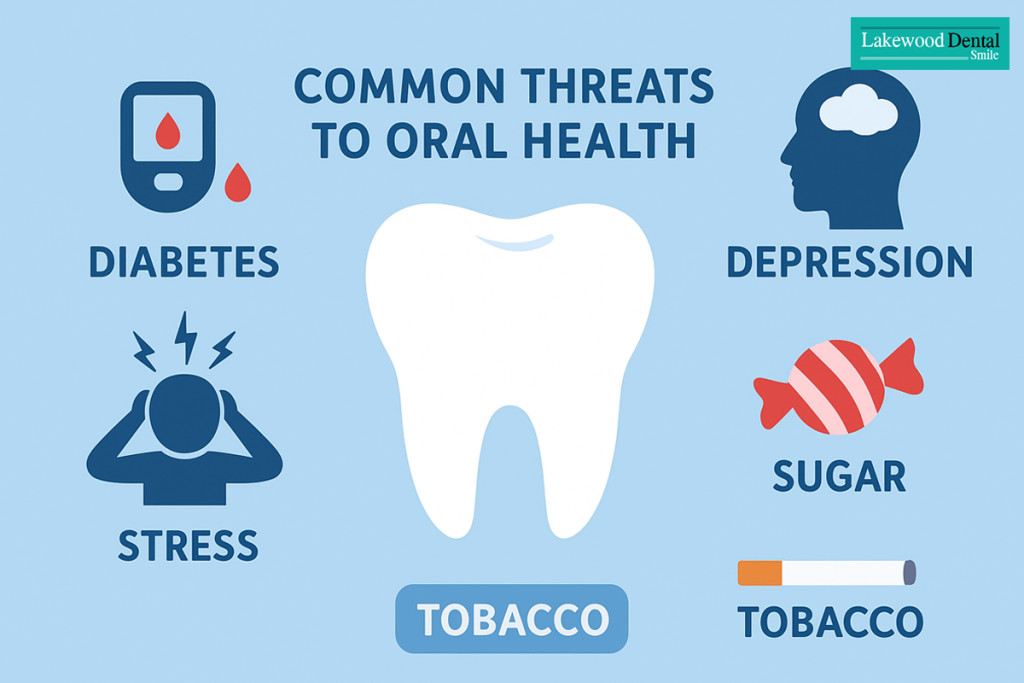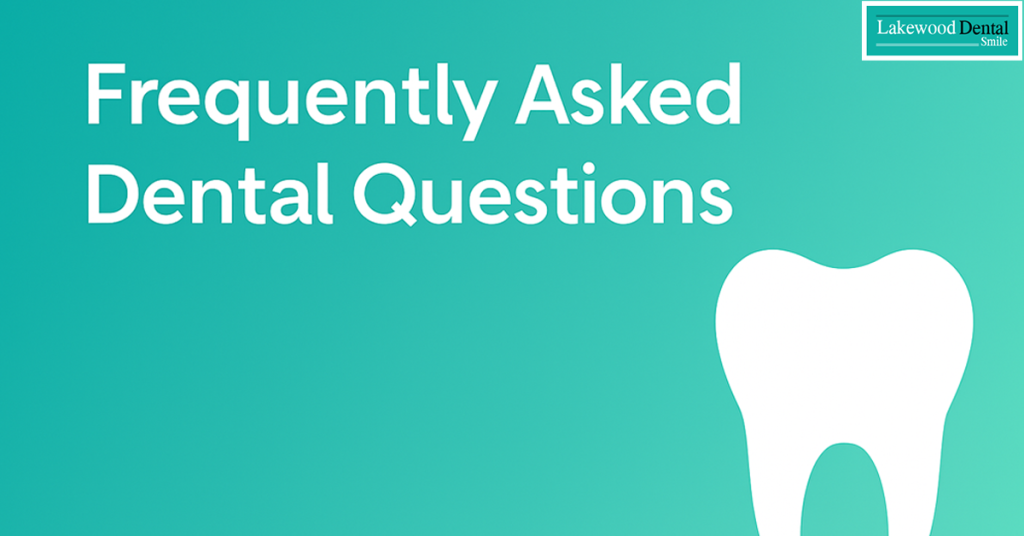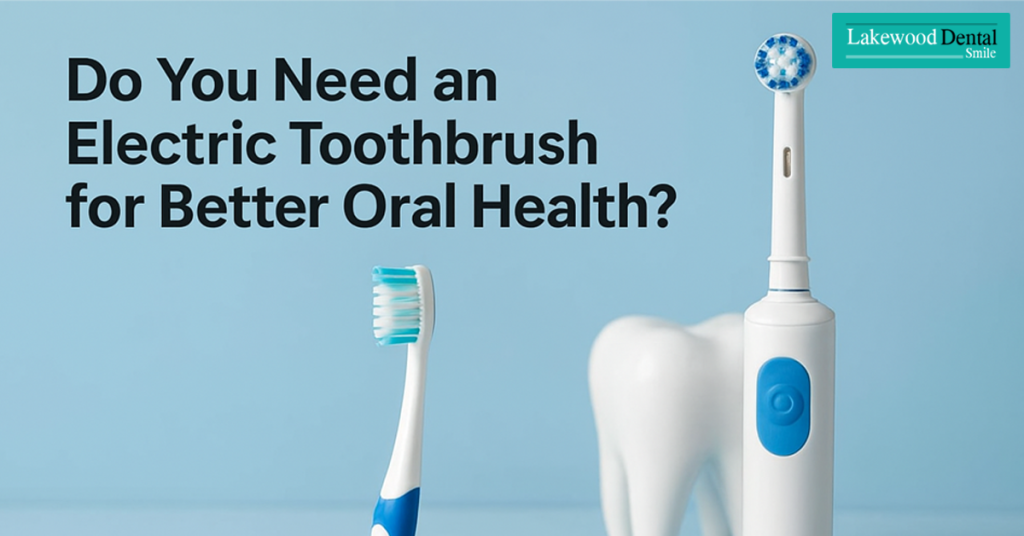
Good brushing and flossing routines are important, but they don’t protect you from every risk. Many oral health threats develop quietly due to lifestyle habits, emotional health, chronic conditions, and environmental factors. These issues can lead to cavities, gum disease, enamel erosion, and long-term complications if not noticed early. Understanding these threats allows you to take smart preventive steps and protect your smile more effectively.
Some risks come from behaviors like tobacco use or high sugar intake, while others arise from conditions such as diabetes, depression, or stress. Emotional and physical well-being influence how consistently people brush, floss, and attend dental visits. Recognizing how these oral health threats impact your daily life helps you build healthier routines and prevent problems before they begin.
1. Diabetes
People with diabetes have a higher chance of developing gum disease. Uncontrolled blood sugar affects the body’s ability to fight infection, leading to inflammation and gum sensitivity. Over time, this can progress to periodontitis, a severe form of gum disease. To reduce risks, monitor blood sugar, maintain daily flossing habits, and schedule regular dental checkups. Consistent care greatly reduces complications.
2. Depression
Depression affects motivation and daily routines, including oral hygiene. When brushing and flossing become irregular, plaque builds up, causing decay, gum irritation, and painful infections. These dental issues can worsen emotional distress, creating a difficult cycle. Seeking mental health support and building simple care routines can protect both emotional and dental health.
3. Stress
Stress causes many people to clench or grind their teeth (bruxism). Over time, this wears down enamel, strains jaw muscles, and increases sensitivity. Nighttime grinding can even damage fillings or crowns. Relaxation techniques, nighttime guards, stretching, and mindful breathing can reduce tension. Managing stress is one of the strongest ways to protect your teeth and prevent enamel wear.
4. Sugar
Sugar remains one of the most common oral health threats. Bacteria in the mouth feed on sugar and produce acids that erode enamel. Sugary drinks, candies, pastries, and processed snacks greatly increase cavity risk. Cutting back on sugar, drinking more water, and brushing after meals help protect teeth from acid attacks and long-term decay.
5. Tobacco
Smoking and chewing tobacco expose your mouth to toxins that weaken gum tissue, stain teeth, and increase susceptibility to infection. Tobacco significantly raises the risk of oral cancer and makes gum disease harder to control. Quitting tobacco is one of the most powerful steps to improve oral and overall health. Professional support makes the quitting process easier and more effective.
6. Acidic Foods and Drinks
Acidic foods and beverages—such as sodas, citrus fruits, sports drinks, and vinegar-based items—soften enamel and increase sensitivity. Over time, this erosion can make teeth more prone to cavities. Drinking water afterward, waiting 30 minutes before brushing, and reducing acidic drink intake can help limit damage.
7. Poor Everyday Habits
Skipping dental visits, brushing too aggressively, or using a hard-bristle toothbrush can harm gums and wear down enamel. Gentle brushing, soft bristles, flossing, and professional cleanings every six months help prevent buildup and protect long-term oral health.
Strengthening Your Oral Health With Prevention
Brushing and flossing are essential, but they are only part of the bigger picture. Diabetes, depression, stress, sugar, tobacco, acidic foods, and poor habits all contribute to long-term oral health threats. When you stay informed and maintain regular dental care, you reduce the chance of major oral problems and support healthier teeth and gums for life.
If you’re in Dearborn, Michigan, Lakewood Dental Smile offers personalized preventive and restorative care to help families recognize and manage these threats. Their supportive, patient-focused approach encourages healthy habits and long-term dental wellness.




